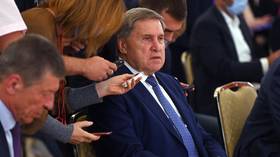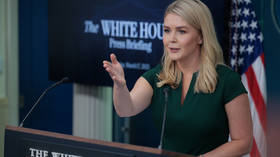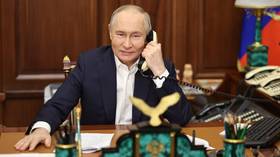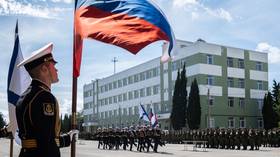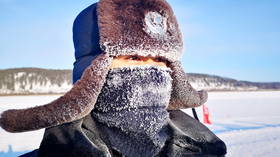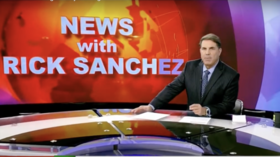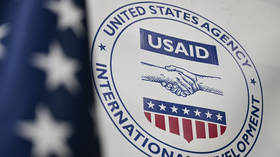WWII for Russia was a question of “to be or not to be” - analyst
The role of the USSR in WWII was the greatest, thinks Yury Rogulev, from the Roosevelt Foundation at Moscow State University.
“For each country, its role in the war was the major role, but if we look at the major events of WWII and if we see that Germany was the center of this war, the center of this aggression, it means that to end the war it was necessary to defeat Germany,” he said, adding “From this point of view, certainly the role of Russia, of the USSR in this war was the greatest, speaking about the scale of this front, the number of German losses in the war – in troops, planes, tanks and any other aspects of the war – the losses on the Eastern Front were the greatest. The number of German troops on the Eastern Front was the largest and of course the scale of fighting was the biggest.”
Rogulev also stressed that co-operation with other countries was really very important, as it helps psychologically when you are fighting and you know that somebody is on your side.
“What usually is forgotten is that the help that Russia began to get was during the most serious and difficult part of this war, when Russia lost a lot of its industry in the European part, lost a lot of troops and had a lack of supplies, even gunpowder was in deficit. Raw materials like steel, like other metals to produce tanks, airplanes were very important. And when this help began to come to Russia at the beginning of 1942, it was really very important for Russia. And not to speak of American automobiles, vehicles – for the Russian [Soviet] Army it was one of the major advantages. It was a modern war, a war of motors, and for Russia, which didn’t end its industrialization plans before the war, such supplies were necessary.”
“What should not be forgotten is that the difference of meaning of this war for Russia and the US. For the Russian people it was the war as a struggle for survival. The question was to be or not to be. We should not forget about the racist ideas of the German leaders, of Nazis who didn’t regard the Slavic people as equal to themselves. That is why this war in Russia is called Great Patriotic War.”
Artyom Drabkin, creator of the Iremember.ru website, interviews war witnesses for his project and most of the questions are about their daily lives.
“Usually I have about 3,000 visitors a day, and currently I have about 10,000 visitors a day. There is a growth in personal accounts, personal view of the historical events,” he says.
Concerning young people visiting this website, Drabkin thinks that “by reading the accounts, they can approach their relatives and ask questions.”
“The state supports my work and my website by annual grants, so they are doing something, but I don’t think enough,” he added.
Anton Bespalov, political analyst from Voice of Russia radio Station, says Victory Day is such a big holiday for Russians today as “at the personal level WWII is an event concerning almost every Russian family. Statistics say that about 90 per cent of Russian men born in 1921 died in their twenties.”
“At the political level, WWII was about survival, not only a political survival, but also biological one,” he added.



